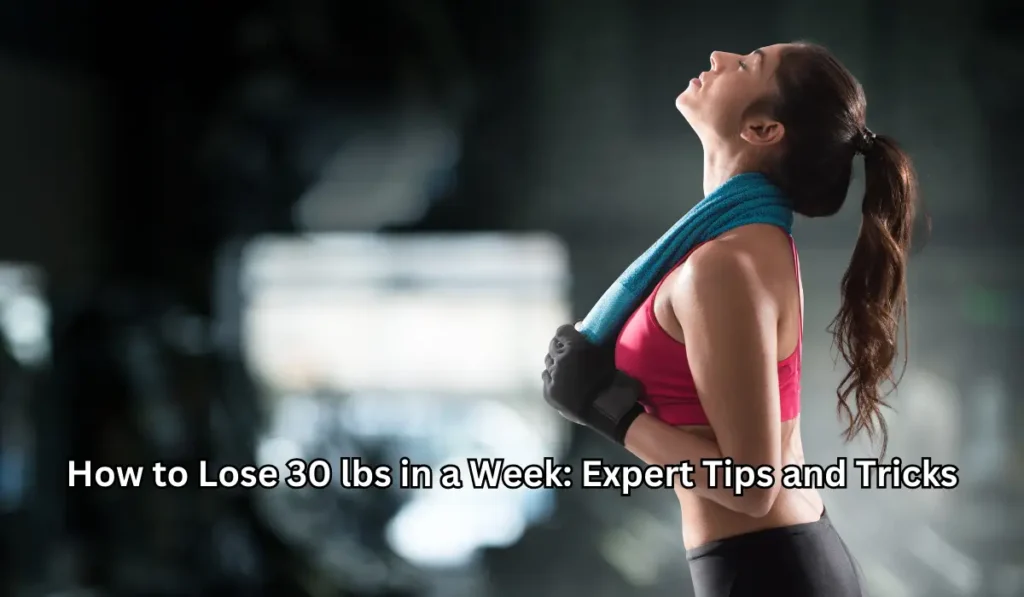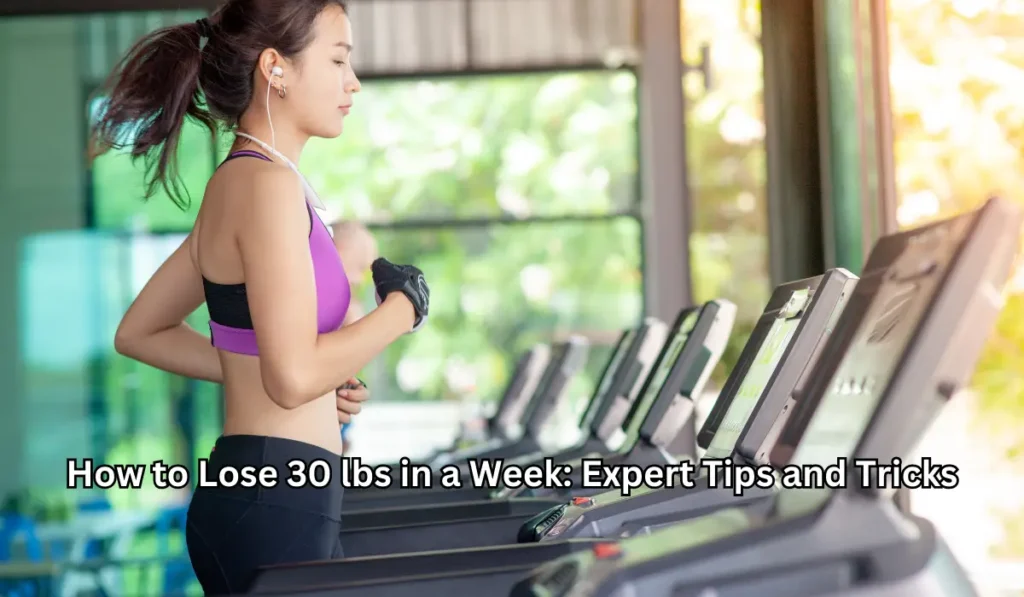
How to Lose 30 lbs in a Week: Expert Tips and Tricks
Losing weight is a common goal for many people, but it can be challenging to know where to start. If you’re looking to lose a significant amount of weight quickly, you may be wondering if it’s even possible. The truth is, losing 30 pounds in a week is an ambitious goal, and it’s not something that can be achieved through traditional methods like diet and exercise alone.
However, there are expert tips and tricks that can help you achieve this goal. In this comprehensive guide, we’ll share some of the most effective ways steroids for sale to lose 30 pounds in a week. We’ll cover everything from diet and exercise to lifestyle changes and supplements. Whether you have a special event coming up or simply want to jumpstart your weight loss journey, our tips and tricks can help you reach your goals.
But before we dive into the specifics, it’s essential to understand that losing weight quickly can come with risks. Rapid weight loss can lead to dehydration, nutrient deficiencies, and other health problems if not done correctly. It’s crucial to consult with a healthcare professional before embarking on any extreme weight loss program.
With that said, if you’re ready to take on the challenge and commit to a week of intense weight loss, let’s get started. Here are our expert tips and tricks on how to lose 30 pounds in a week.
Create a calorie deficit
Creating a calorie deficit is crucial when it comes to losing weight. This means consuming fewer calories than you burn each day. To lose 30 pounds in a week, you’ll need to create a significant calorie deficit. Here are some tips for achieving this:
- Calculate your daily caloric needs based on your age, gender, height, weight, and activity level.
- Aim to consume at least 500 fewer calories per day than your calculated needs.
- Avoid foods that are liquid clenbuterol for sale high in calories but low in nutrients, such as processed snacks and sugary drinks.
- Focus on eating nutrient-dense foods, such as lean proteins, fruits, vegetables, and whole grains.
- Use a food scale and measuring cups to ensure you’re accurately tracking your calorie intake.
- Be mindful of portion sizes and avoid eating until you’re overly full.
- Consider using a food journal or app to track your calorie intake and stay on track.
Follow a strict low-carb diet
Following a strict low-carb diet can be an effective way to lose weight quickly. This type of diet involves reducing your intake of carbohydrates, which forces your body to burn fat for energy instead. Here are some tips for following a low-carb diet:
- Limit your intake of foods that are high in carbohydrates, such as bread, pasta, rice, and sugary foods.
- Focus on eating protein-rich foods, such as meat, fish, eggs, and tofu.
- Eat plenty of non-starchy vegetables, such as leafy greens, broccoli, and cauliflower.
- Incorporate healthy fats into your diet, such as olive oil, avocado, and nuts.
- Avoid processed foods and snacks, as they tend to be high in carbs and low in nutrients.
- Be mindful of hidden sources of carbs, such as sauces, condiments, and dressings.
- Consider using a low-carb meal plan or working with a nutritionist to ensure you’re meeting your nutrient needs.
Incorporate intermittent fasting
Incorporating intermittent fasting into your weight loss plan can be a powerful tool for shedding pounds quickly. Intermittent fasting involves alternating periods of fasting with periods of eating. Here are some tips for incorporating intermittent fasting:
- Choose a fasting schedule that works for you. Some popular options include the 16/8 method (fasting for 16 hours and eating during an 8-hour window) or the 5:2 method (eating normally for five days and consuming only 500-600 calories on two non-consecutive days).
- Drink plenty of water and other non-caloric beverages during your fasting periods to stay hydrated.
- During your eating periods, focus on nutrient-dense foods and avoid overeating.
- Gradually increase the length of your fasting periods over time to avoid overwhelming your body.
- Be aware of any potential health risks associated with fasting and consult with a healthcare professional before beginning an intermittent fasting regimen.
Read about Comparing Pre Workout vs Creatine

Increase your water intake
Increasing your water intake can be an effective way to support weight loss. Drinking water can help flush toxins out of your body, reduce your appetite, and boost your metabolism. Here are some tips for increasing your water intake:
- Aim to drink at least 8-10 cups of water per day.
- Carry a water bottle with you throughout the day to make it easier to stay hydrated.
- Try adding lemon or cucumber slices to your water for a refreshing flavor boost.
- Drink a glass of water before each meal to help reduce your appetite and prevent overeating.
- Avoid sugary drinks, as they can be high in calories and contribute to weight gain.
- Consider using a hydration tracking app or journal to help you stay on track with your water intake.
Engage in high-intensity interval training (HIIT)
Engaging in high-intensity interval training (HIIT) can be an effective way to burn calories and lose weight quickly. HIIT involves short bursts of intense exercise followed by periods of rest. Here are some tips for incorporating HIIT into your workout routine:
- Choose exercises that get your heart rate up, such as sprints, jump squats, or burpees.
- Alternate between periods of intense exercise (20-30 seconds) and periods of rest (10-15 seconds).
- Aim to complete 3-4 sets of each exercise in a HIIT workout.
- Combine different exercises to target different muscle groups and keep your workouts interesting.
- Gradually increase the intensity of your workouts over time to avoid injury.
- Consider working with a personal trainer to ensure proper form and maximize the effectiveness of your workouts.
Add strength training to your routine
Adding strength training to your workout routine can be an effective way to build muscle mass, which can help boost your metabolism and burn calories even when you’re not working out. Here are some tips for incorporating strength training into your routine:
- Choose exercises that target multiple muscle groups, such as squats, lunges, and push-ups.
- Start with light weights and gradually increase the amount of weight you lift over time.
- Aim to complete 3-4 sets of 8-12 reps for each exercise.
- Allow for rest days between strength training sessions to allow your muscles to recover.
- Consider incorporating resistance bands or bodyweight exercises if you don’t have access to weights.
- Work with a personal trainer or attend a strength training class to ensure proper form and maximize the effectiveness of your workouts.
Read about Alexa Bliss Bodybuilding
Get enough sleep and manage stress
Getting enough sleep and managing stress are essential components of any weight loss plan. Lack of sleep and high levels of stress can disrupt hormones that regulate hunger and appetite, leading to overeating and weight gain. Here are some tips for getting enough sleep and managing stress:
- Aim to get at least 7-8 hours of sleep per night.
- Establish a consistent sleep schedule by going to bed and waking up at the same time each day.
- Create a relaxing bedtime routine, such as taking a warm bath or reading a book.
- Avoid using electronic devices, such as smartphones and tablets, before bedtime.
- Practice stress-reducing activities, such as yoga, meditation, or deep breathing.
- Make time for enjoyable activities, such as spending time with friends and family or engaging in a hobby.
- Consider working with a mental health professional if you’re struggling with high levels of stress or anxiety.
Consider using supplements cautiously
While some supplements may claim to aid in weight loss, it’s important to approach them with caution. Not all supplements are safe or effective, and some may even be harmful. Here are some tips for using supplements cautiously:
- Consult with a healthcare professional before taking any supplements.
- Be wary of supplements that make unrealistic weight loss claims.
- Avoid supplements that contain harmful ingredients, such as ephedrine or synephrine.
- Look for supplements that have been independently tested and certified by third-party organizations.
- Avoid taking multiple supplements at once, as they may interact with each other or with medications you’re taking.
- Always follow the recommended dosage instructions and never exceed the recommended amount.
- Remember that supplements are not a substitute for a healthy diet and exercise, and should only be used as part of a comprehensive weight loss plan.
See also info about Dianabol Pills for Sale
Monitor your progress and adjust as needed
Monitoring your progress and adjusting your weight loss plan as needed is crucial for staying on track and achieving your goals. Here are some tips for monitoring your progress and making adjustments:
- Weigh yourself regularly, but not obsessively. Once a week is typically sufficient.
- Take measurements of your waist, hips, and other areas of your body to track changes in body composition.
- Keep a food journal or use a tracking app to monitor your calorie intake and ensure you’re meeting your nutrient needs.
- Track your exercise and activity levels to ensure you’re getting enough physical activity.
- Be patient and realistic with your goals. Rapid weight loss may not be sustainable, and it’s important to focus on making long-term lifestyle changes.
- Adjust your plan as needed based on your progress and any challenges you encounter.
- Celebrate your successes and focus on the positive changes you’re making for your health and well-being.

Conclusion
Losing 30 pounds in a week is an ambitious goal, but with the right approach and commitment, it is possible. Incorporating a combination of expert tips and tricks, including creating a calorie deficit, following a low-carb diet, incorporating intermittent fasting, increasing your water intake, engaging in high-intensity interval training, adding strength training to your routine, getting enough sleep and managing stress, considering supplements cautiously, and monitoring your progress and adjusting as needed, can help you achieve your weight loss goals quickly and safely.
It’s important to remember that rapid weight loss can come with risks, and it’s crucial to consult with a healthcare professional before embarking on any extreme weight loss program. With a comprehensive weight loss plan that includes lifestyle changes, healthy eating habits, and regular physical activity, you can achieve sustainable weight loss and improve your overall health and well-being. Remember to be patient, stay focused on your goals, and celebrate your successes along the way.

